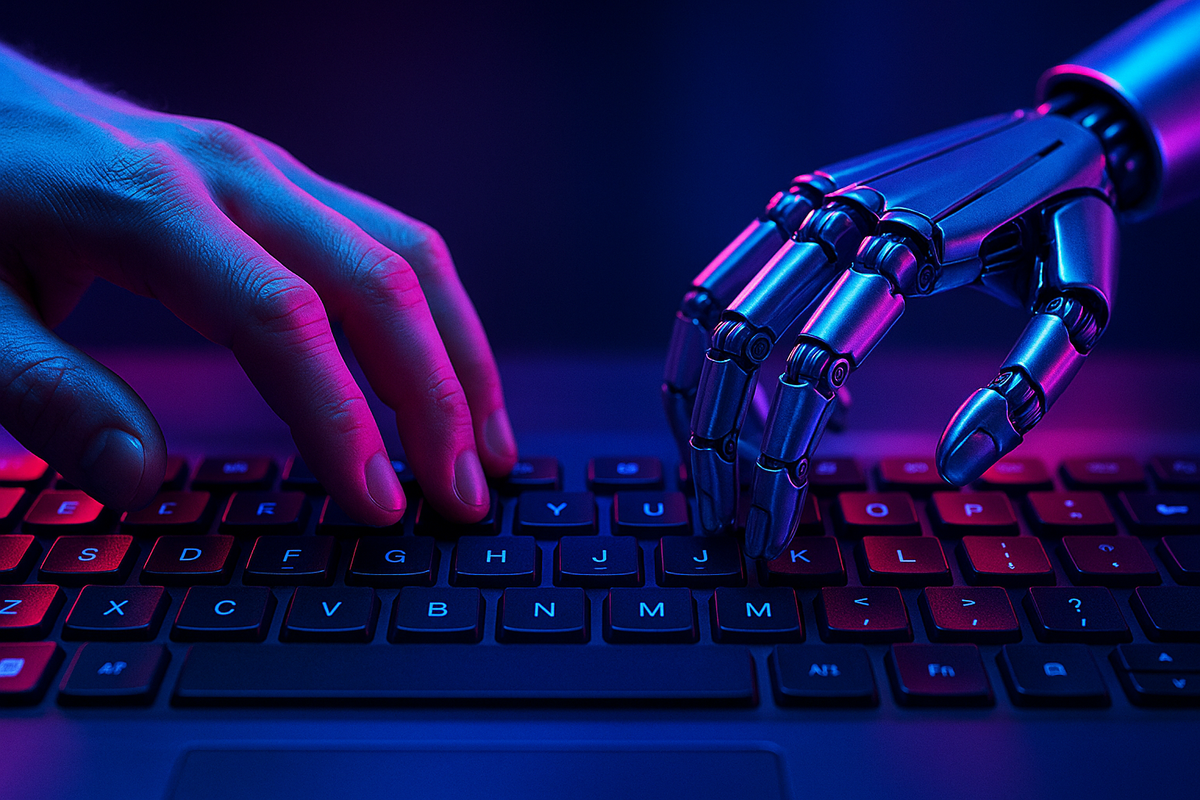Death Throes of The Internet

It’s time we had a conversation about the internet. It’s dying.
Now, I’m not the first to make that claim. Certain corners of the web believe the internet died a long time ago, and that almost everything we see online is bot-generated, algorithmically manipulated, or in some way agenda-driven. That may not be entirely true—yet—but we're drifting uncomfortably close to that reality.
Even before generative AI, social media was heavily reliant on algorithms and machine learning to curate content, drive engagement, and meet our insatiable desire for "content."
Quoting the Asian Journal of Research in Computer Science:
"While these tools enhance scalability and personalization, they also prioritize virality and consumption over authentic communication, contributing to the erosion of trust, the loss of content diversity, and a dehumanized internet experience."
Content culture has transformed social media from a communication platform into a content mill with social features. Our real-life relationships and life events have been reduced to content to be shared and consumed—feeding cycles of vicarious living and mimetic desire.
In other words, we're living life through our phones, not with them.
But opting out isn’t easy. Disconnection brings its own form of alienation: loss of news, relationships, and community. It's a toxic cycle—trying to avoid loneliness by scrolling the internet in our beds, alone—knowing that the endless stream of content will keep the feelings of loneliness and inadequacy going.
But the same technology that made platforms like X, Facebook, and Instagram so addicting is also making the social media experience feel hollow and inorganic. But Silicon valley is working on a fix.
"AI users" are being positioned as a solution—a way to reinvigorate the social experience. Back in December 2024, Connor Hayes, VP of generative AI at Meta, said this in an interview to the Financial Times:
"We expect these AIs to actually, over time, exist on our platforms, kind of in the same way that accounts do. They'll have bios and profile pictures and be able to generate and share content powered by AI on the platform...that's where we see all of this going."
From Meta’s perspective, AI is the perfect tool to put the "social" back into social media and inject new "life" into a stagnating social media ecosystem so heavily engagement revenue.
Will it work? Probably.
Early tests show that it’s already next to impossible to distinguish between humans and AI agents online. In fact, Meta was testing AI agents on their platforms for over a year before getting caught and being forced to acknowledge their existence. Despite the backlash, there’s every indication that AI agents will become a standard feature of social media in the not too distant future.
Because people probably won't care.
If humans can derive the same types of entertainment and satisfaction from bots as from people, why not let companies provide it as a service? And as AI technology advances, these "users" can be tailored to address psychological, emotional, and social needs of their human counterparts.
If the boffins in Silicon Valley can find the "sweet spot" between humans and bots that will keep us hooked, why shouldn’t they?
If your favorite influencer turned out to be AI, would it matter? Would your digital experience feel less real than it already does?
Did we ever really care about the people on the other side of the screen, or were we just chasing feelings all along?
What will it take to believe that what you see online is real, or human?
We once believed that behind every comment, like, and message was a thinking, feeling person—feeding our egos and serving up entertainment. But AI is showing us that we don’t mind being lied to—as long as it’s a good lie.
This is what I mean when I say we may be watching the internet die in real time.
Early research shows bots can drive engagement and influence user behavior without us even realizing it. AI is already more persuasive than most people online. It can form relationships and even simulate empathy. It’s a terrifyingly powerful tool to place in the hands of corporate interests.
It's hard not to be pessimistic about the dystopian internet we’re careening toward. But we’re nearing a tipping point. Regulation is slow. Bad actors are fast. And tech companies are motivated to satisfy investors and generate returns.
The nexus of AI and social media will be a reckoning for society, as we question truth, authenticity, and the nature of community, humanity, and technology in a single historic moment.
Regardless, I believe that the market will ultimately decide the future of AI, the internet and social media but the public needs to be informed. Given that big tech bears most of the responsibility for distributing the information and has the ability to direct the narrative, it's a lot of faith to put in the companies with such a heavy conflict of interest, and who have yet to determine their own social license to operate especially relative to their vested interests.
We, the human users will need to decide what internet they want to inhabit. And we each have a choice.
We may have to create alternative spaces. We can set boundaries. Or we can disconnect.
But we can’t keep pretending it’s business as usual.
The internet we knew may already be gone. What comes next depends on what we do now.
